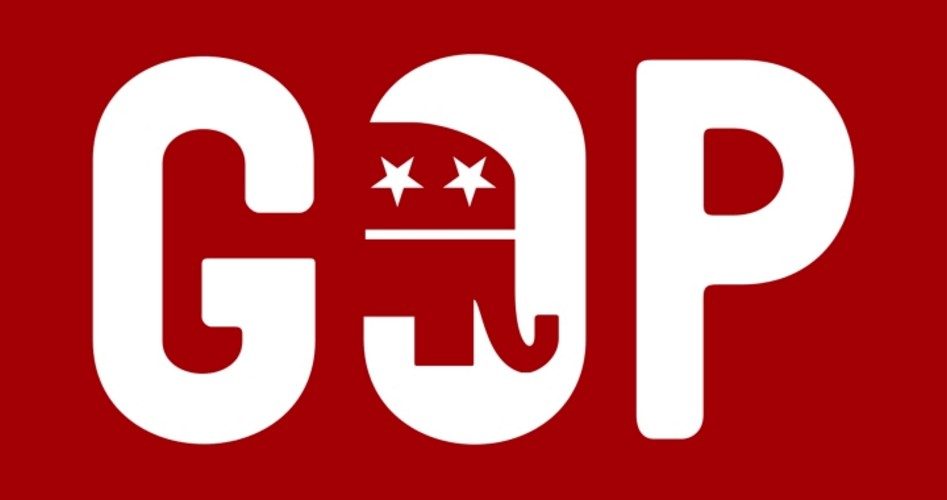
In order to pass a 2016 budget, Republican leaders have turned to a rarely used rule that would allow lawmakers to vote on multiple proposals, hoping to appease conservatives and the so-called “hawks”. According to GOP leadership, the goal was to pass a budget in the first 100 days of the new Congress, and they are confident that they will do so.
“The goal was to get a budget done before we depart” for the Easter recess, Majority Leader Kevin McCarthy (R-Calif.) told Politico in an interview Tuesday. “That was our goal in the first 100 days, and we’re getting that done. We wanted to start eliminating [fiscal] cliffs. Getting [the Sustainable Growth Rate] done is big. Seventeen times it’s just been pushed forward. Getting entitlement reform — this is something we’ve been striving for 20 years,” McCarthy continued.
Earlier this month, Republicans could not agree among themselves as House conservatives expressed frustration at what they view as weak leadership after House Speaker John Boehner (R-Ohio) cut several deals with Democrats, which included passage of an Amtrak bill, funding of the Department of Homeland Security, and addressing the Medicare Sustainable Growth Rate.
“We were hoping to move everything to the right,” Representative John Fleming (R-La.) told the Washington Examiner. “Looks like to me they are moving it to the Left. They’ve given up on us so they are going to the Democrats to get votes.”
“We are forgetting our core principles as a party,” Representative Walter Jones (R-N.C.) warned. “And I think you need to lead with those core principles. If Boehner continues to reach out to Democrats to pass legislation, it’s going to continue to divide the party. Not just here, but across the nation.”
When Boehner vowed to move ahead with spending items such as the permanent “doc fix” and an increased defense budget with no corresponding cuts, Representative Tim Huelskamp (R-Kan.) argued Republicans cannot claim to be fiscally conservative as long as spending continues to rise under their leadership.
“Talking to some of my fellow conservatives, I said, ‘How do we tell Democrats we’re serious about cutting spending when our spending will bulk up when we’re going to cut their [programs]?” Rep. Huelskamp said. “My worry is that … we’re going to break open the budget caps. That’s what we’re doing.”
But House leaders are now confident that they can secure the necessary votes to move forward with the help of Majority Whip Steve Scalise (R-La.).
Just before leaving for a two-week break, House leadership will be using a parliamentary maneuver called “Queen of the Hill,” which allows the House to vote on two different budgets. The budget that secures the most votes will be the one that is considered “passed.”
The first budget, labeled “Price 1” after Budget Chairman Tom Price (R-Ga.), is what was approved by the Budget panel last week. The second, dubbed “Price 2,” increases defense spending by an additional $20 billion, a major point of contention with House conservatives last week who argued that any budget increase should be offset by spending cuts.
Representative Tom McClintock (R-Calif.) opined that Boehner should have been able to find some area where cuts could have been made to compensate for the increase in defense spending.
“It’s a $3.8 trillion budget,” said McClintock. “We ought to be able to find $20 billion to cut somewhere.”
Similar sentiments came from Budget panel member Marlin Stutzman (R-Ind.), a self-proclaimed “defense hawk.”
“Our responsibility, as a defense hawk myself, is to fund the military but also to pay for it by offsets,” said Stutzman. “We can find a way to pay for $20 billion.”
Additionally, the House will be voting on four other budgets, including a more conservative one out of the Republican Study Committee, a House Democratic budget drafted by Representative Chris Van Hollen (D-Md.), a liberal budget by the Progressive Caucus, and another from the Congressional Black Caucus.
It was Representative Jim Jordan (R-Ohio), chair of the House Freedom Caucus, who posed the idea for the “Queen of the Hill” strategy. “We wanted to be able to vote on multiple budgets,” he told Politico.
Response from House Republicans has been mixed.
“Some of us are defense guys, some of us are budget guys, and some of us are both. I’m both,” said Republican Study Committee Chairman Bill Flores of Texas. “I think they worked up a decent solution, but it does show the challenges we have.”
Representative Rob Woodall (R-Ga.) called the solution the best of the “bad choices.”
“This is as open and creative a solution as we were going to find,” Woodall said in an interview. “It’s better than rolling the Budget Committee, it’s better than rolling the Rules Committee and doing a self-executing amendment. Of all the bad choices we had to try to work this thing out, this was the best.”
As noted by Roll Call, however, the Republican plan can still produce variable outcomes. For example, Democrats could vote “present” and force Republicans to defeat the more conservative budget, which Republican House leadership does not want, on their own.
Democrats could cause even further problems by choosing the budget reported out of committee last week, writes Roll Call:
If some Democrats actually voted for the original budget reported out of committee last week, and then withheld their support for the budget with the $2 billion more for OCO, they could thwart GOP leadership’s plans. By lending support to the GOP budget that’s supposed to fail, theoretically making that budget the ‘Queen of the Hill,’ Democrats could further fracture Republicans. Such a move, while unlikely, would certainly anger defense hawks who already feel the GOP conference is being unduly controlled by its most conservative elements.
And while the Queen of the Hill rule is intended to avoid an embarrassing floor defeat, it will force the heavy divides in the Republican Party to be very openly displayed.
House Republican leaders have warned their colleagues that it is in their best interest to pass a budget because failing to do so would cause them to lose their only chance this year of getting a bill repealing ObamaCare to the president’s desk.
CNN reports, “Both the House and Senate budget plans include a procedural tool known as ‘budget reconciliation’ that allows the Senate to overcome a filibuster and pass legislation rolling back the President’s signature health care law with a simple majority of 51 votes.”
House leaders might have a tougher time passing a budget, however, as a looming Thursday vote on a $200 billion bipartisan deal negotiated with Nancy Pelosi for the “doc fix” is sure to weigh on the minds of some fiscal conservatives, who have opined that only about one third of the bill’s price tag has been offset by cuts elsewhere.
The House is expected to vote on the budgets on Wednesday.




